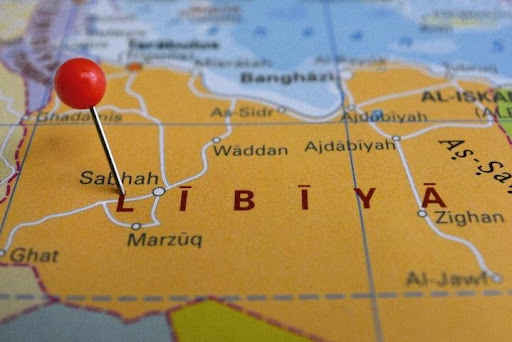
Yet many of the election's front-runners point to a significant cause for concern
Just over a decade ago, the death of Libya's Muammar al-Gaddafi brought an official end to the country's Civil War. But the subsequent withdrawal of NATO's military operations has been anything but a coda to violence in the country. Instead, the Second Libyan Civil War has ravaged with little respite until recently and split the country into two rival parliaments - each with competing agendas and militias.
The leadership of the country with Africa's largest oil reserves, among the ten largest globally, has been a contested free-for-all between radical Islamists, the UN-backed government of Fayez al Sarraj, and the Tobruk-based Libyan National Army (LNA), led by General Khalifa Haftar. The resulting lawlessness has instigated one of the most important migrant crises in modern history, with many thousands fleeing a country which once boasted free education and healthcare to seek refuge overseas. Internally, more than 200,000 Libyans are displaced with over a million in need of humanitarian aid, according to the United Nations.
A rare shimmer of optimism has emerged this year, in that a presidential election is to be held in the country for the first time, regarded as a major step forward towards ending the violence which has plagued the country over the last ten years. Born out of the United Nations Peace Plan, which emphasized a need for an end to foreign interference, reconciliation, and the rule of law, the elections are reported to be widely supported by the majority of Libyans.
The UN Secretary General Antonio Guterres said in November that "Libya today is closer than it has been for many years to solving its internal crisis and breaking the cycle of political transitions", warning of the dangers of a missed opportunity. The message could not have been clearer. "Elections are an essential next step on the road to peace and stability. This step has to be built on a strong foundation of inclusive and credible frameworks that can guarantee its success", and "individual ambitions cannot stand in the way of Libya's peaceful transition". But as the days dwindle in advance of the election date, there appears to be little evidence that Mr. Guterres' warnings are about to be heeded.
The long-term stability of Libya is both in its domestic interests and the interests of the international community. A democratically-elected government which is supported by the majority of Libyans and committed to fostering inclusive and credible frameworks in the country is the best way to build a sustainable and secure country which is strategically significant to the security of the West. But many of the primary contenders for Libya's elections already appear to pose grave threats to the long-term stability of the country and fall far short of guaranteeing the objectives set by the UN. In other words, there is a significant risk of returning Libya to the chaos of the past decade should the country fail to elect a leader fully committed to delivering an inclusive country built on a strong institutional framework.
Numerous red-flags suggest severe cause for concern. In March of this year, the current Prime Minister, Abdel Hamid Dbeibah, was revealed by a UN inquiry to have offered bribes as high as $200,000 to supporters in order to attract votes during the UN dialogue forum process which EU countries heavily invested in. Should he prevail, there is every reason to believe that his Presidency would deliver more of the institutionalized corruption that beset the Gaddafi era.
Others to have thrown their hat in the ring, such as Khalifa Haftar, do not offer much more cause for optimism. The Eastern-military commander mounted a deadly campaign to seize Tripoli in 2020 and is despised by many in the Western half of the country, against whom he has waged a sustained military campaign for many years. And lastly, Saif al-Islam al-Gaddafi, the son of the erstwhile leader has declared his intention to run despite spending the best part of the last ten years in incarceration and holding an ICC arrest warrant for crimes against humanity. As the Financial Times, International Affairs Editor David Gardner opined, "Many Libyans may now wonder: to what conceivable question could Saif al-Islam be the answer"? Indeed, it begs the question as to whether Libya will have achieved anything in its bloody conflict if a return to a new generation of Gaddafi rule is the best outcome available.
Libya's long-term stability and security is vital to the international community for three reasons. Firstly, as we have already seen before, power vacuums in the country have given rise to Islamic militias and factions such as Islamic State which pose a direct terror threat to Western nations. Secondly, Libya has historically been an important source of energy and trading partner for Europe. In 2010, 22% of Italian, 15.7% of French, and 23.3% of Irish oil imports came from Libya. And lastly, unrest and lawlessness in Libya have fuelled the rise of activities such as smuggling, human trafficking, and other criminal activities around the Mediterranean. It is in the long-term interests of the international community to see Libya emerge as a strong and stable independent nation, rather than to let it collapse into permanent disarray.
For this reason, the international community must champion the transition to strong and stable leadership election via elections which are fairly conducted, so long as the outcome of that election delivers a candidate which is ultimately aligned with the UN's target objectives. Should any candidate with an alternative agenda prevail, the prospect of a return to unrest looms large, and the stakes could not be higher for international security?









